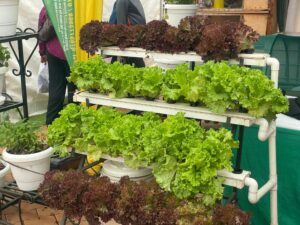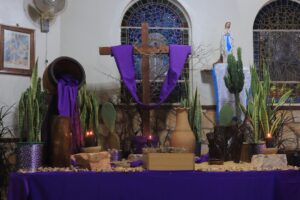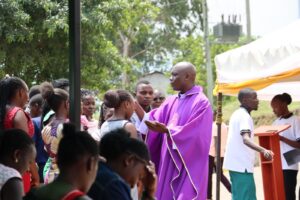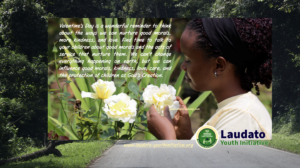By Laudato Youth Voices:
The Catholic Social Teaching (CST) plays a significant role in shaping development and ecological justice in Uganda. We are a Country of God and so our work must be guided by God “For God and my Country” Rooted in Gospel values and Church tradition, CST provides a moral and ethical framework that guides individuals, communities, and institutions in promoting human dignity, social equity, and care for creation. Laudato Youth have tried to explore ways how CST influences development and ecological justice in the Ugandan context as away to encourage young people to put priotise God to build a God fearing nation and people that will love and develop their Country:
Foundations of Catholic Social Teaching (CST)
CST is built on key principles that guide its approach to social, economic, and environmental issues. These include: Human Dignity, Common Good, Solidarity, Preferential Option for the Poor, Subsidiarity, Stewardship of Creation and Rights and Responsibilities. These principles are drawn from encyclicals like Laudato Si’, Rerum Novarum, Caritas in Veritate, and Evangelii Gaudium, and they are increasingly relevant in the Ugandan context.
The Role of the Catholic Social Teachings in the Development of our Country
a. Human-Centered Development
CST emphasizes the dignity of the human person. In Uganda, this has translated into:
- Catholic institutions (churches, schools, hospitals) providing education, healthcare, and vocational training, especially in rural and underserved areas and so we see this shaping the future of our Country and invite young people to focus more in building on these efforts that laid a firm foundation for our Country’s economic development and now the concern of its ecological sustainability.
- Promoting holistic development that prioritizes human well-being over mere economic growth.
b. Economic Justice and Empowerment
The Church in Uganda advocates for fair distribution of resources, decent work, and rights of workers: young people need to open up to work towards building on this firm foundation.
- Catholic organizations like Caritas Uganda support income-generating projects, microfinance initiatives like Centernary bank have helped communities alliviate poverty, agricultural cooperatives and efforts remain vessels of economic justice in our Country. The young people now need to focus on efforts that can build on legacies like those of St. Adolf Mukasa Ludigo the patron of Farmers and Hardsmen to promote our Countries Identity as an Agricultural Country with firm religious roots.
- CST critiques economic systems that marginalize the poor, calling for inclusive growth and accountability in governance. These are lessons we must all learn and devise solutions to ensure all empowered and supported to thrive. Laudato Youth Initiative is mobelizing young people to be creative and value work for better formation.
c. Peacebuilding and Good Governance
The Church is actively involved in civic education, reconciliation, and peacebuilding, especially in post-conflict regions like Northern Uganda. We need to do more to promote peace even at family level. The theme of our Laudato Si festival (is an environmental forum that unites young people in prayer and action to desern their role as stewards of the future and in shpaing the next generation of a climate resileint generation.) this year is “Sowing Seeds of Peace and Hope for Creation” CST informs these efforts by promoting: Justice, forgiveness, and healing; Participatory governance and respect for human rights
Role in Ecological Justice in Uganda
a. Stewardship and Environmental Ethics
Drawing from Laudato Si’, CST urges care for creation:
- The Church in Uganda promotes tree planting, reforestation, and organic farming.
- Catholic schools and parishes include environmental education and practical eco-projects. Our Laudato Youth Initiative is filling in this gap; We have opened numerous Laudato Si Clubs in Schools, Parishes, Dioceses, and Communities to united young people for Climate Action.
b. Advocacy Against Environmental Degradation
CST encourages prophetic witness against exploitation:
- The Ugandan Catholic Bishops’ Conference has spoken out against deforestation, wetland destruction, and extractive industries that harm ecosystems and communities (e.g., oil drilling in the Albertine region). We are now raising voices to this message encouraging individuals to play a role towards implementing a step by step solution to addressing these challenges including the must worrying waste management that is turning some parts of our Country into filth causing environmental hazards from seeing people die because of rubbish at the kitezi land fill to witnessing increased flooding due to poor disposal of plastic materials we need to be the change we want to see in our Country.
- The Church calls for environmental justice where the poor, who suffer most from ecological degradation, are protected.
c. Integration of Faith and Ecology
The concept of “integral ecology” in CST connects social and environmental concerns:
- The Church links poverty eradication with environmental sustainability, recognizing that the two are interdependent.
- More Projects should focus on sustainable agriculture, renewable energy, and climate change resilience, especially for vulnerable communities.
Challenges and Opportunities
Challenges:
- Limited resources and infrastructure
- Resistance from political leaders and development partners who are investing in areas like wetlands and this is also true with economic elites
- Environmental policies that lack maximum enforcement. Our Country needs to do more to involve people in taking responsibility to care for the environment. What happens to those who litter? What happens to those who own bare land and do not even clean the road reserves in their land, those cutting trees daily without planting more, the bare road reserves who is supposed to plant trees in them?
- Cultural practices conflicting with environmental ethics need to be re considered for review
Opportunities:
- Strong Church presence and credibility in Uganda is seeing progress
- Growing youth engagement in climate action in Uganda for Instance our Laudato Youth Initiative has a track record of having reached out to a big number of youth on grassroots, in their schools, churches etc such efforts need to be supported and encouraged to grow their impact
- Partnerships with NGOs, government, and global Catholic networks will accellerate action response. We recently joined the Laudato Si Action Platform to broaden our journey towards total sustainability sharing knowledge, fostering community, and inspiring action across various Laudato Si Clubs, including families, institutions, and communities.
- Pope Francis’ global moral leadership on ecological issues. We are now standing firm to uphold his ecological legacy
Catholic Social Teaching has a transformative role in promoting both development and ecological justice in Uganda. Through education, advocacy, community empowerment, and moral guidance, the Church addresses the interconnected challenges of poverty, inequality, and environmental degradation. As Uganda faces rapid demographic and environmental changes, CST remains a vital framework for building a just, peaceful, and sustainable society.













